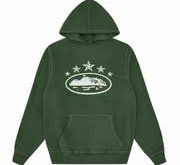In today’s competitive market, focus group research plays a pivotal role in helping brands develop effective strategies. It is one of the most valuable tools businesses can use to gain insights directly from consumers, enabling them to make informed decisions. This type of qualitative research provides a deeper understanding of consumer behavior, preferences, and attitudes, which are essential in shaping a strong brand strategy.
This blog will explore the role of focus group research in brand strategy and how it can help businesses navigate market challenges, meet consumer expectations, and stay ahead of competitors.
What is Focus Group Research?
Focus group research is a qualitative research method that involves gathering a small group of people to discuss specific products, services, or topics. These participants are typically selected based on certain demographic or behavioral characteristics to ensure they represent the target audience. During the discussion, a moderator guides the conversation, asking open-ended questions to encourage participants to share their thoughts, feelings, and opinions.
Unlike quantitative research, which focuses on numerical data, focus group research dives into the emotional and psychological factors that influence consumer behavior. This makes it particularly useful for understanding why people feel the way they do about a brand, product, or service.
How Focus Group Research Shapes Brand Strategy
-
Gaining In-Depth Consumer Insights
One of the key advantages of focus group research is its ability to provide detailed insights into consumer perceptions and behaviors. Brands can use this information to understand the motivations behind consumer choices, identify pain points, and uncover unmet needs. These insights are crucial for crafting a brand strategy that resonates with the target audience.
For example, a brand might discover through focus group research that consumers perceive their product as outdated or difficult to use. With this knowledge, the company can adjust its brand messaging or product design to better align with consumer expectations.
-
Testing Brand Messaging
Before launching a new product or campaign, brands often need to test their messaging to ensure it appeals to their target audience. Focus group research is an effective way to gauge how consumers react to different messages, slogans, or advertising concepts. Participants’ feedback can reveal whether the messaging is clear, engaging, and memorable.
By using focus group research to test different approaches, brands can refine their communications, ensuring that their message not only reaches the audience but also resonates on an emotional level. This can prevent costly mistakes that may arise from a campaign that misses the mark.
-
Identifying Market Trends
In an ever-evolving marketplace, staying ahead of trends is essential for maintaining brand relevance. Focus group research can help brands identify emerging trends by exploring the changing needs, preferences, and behaviors of their target audience. These trends can inform product development, marketing strategies, and brand positioning.
Through focus group research, companies can understand shifts in consumer attitudes toward sustainability, technology, or social issues, allowing them to adapt their brand strategy to reflect these changes. Brands that are able to quickly respond to market trends are often seen as more innovative and in touch with their customers.
-
Evaluating Brand Perception
Brand perception is the way consumers view and feel about a brand. It is shaped by their interactions with the brand, their experiences with its products or services, and the messages they receive through advertising and other channels. Focus group research allows brands to evaluate their current brand perception, identifying both positive associations and areas for improvement.
If a brand finds that consumers have a negative perception of their customer service, for instance, they can work on improving this aspect of their brand. Understanding how a brand is perceived is a critical step in developing a strategy that strengthens consumer loyalty and brand affinity.
-
Creating Targeted Marketing Campaigns
Effective marketing campaigns rely on a deep understanding of the audience. Focus group research provides brands with valuable insights into the preferences, behaviors, and motivations of their target audience. This data can be used to create highly targeted marketing campaigns that speak directly to the consumers’ needs and desires.
By tailoring their campaigns based on the findings from focus group research, brands can improve the relevance and effectiveness of their marketing efforts. Whether it’s selecting the right platforms, refining the tone of voice, or choosing the right visuals, the insights gained can help optimize every aspect of a marketing campaign.
Challenges and Considerations in Focus Group Research
While focus group research offers many benefits, it is important to approach it with care to ensure the results are reliable and actionable. Here are a few challenges to keep in mind:
- Group Dynamics: Sometimes, stronger personalities within the group can dominate the discussion, which may skew the results. Moderators need to ensure that all participants have the opportunity to share their views.
- Subjectivity: Since focus group research is qualitative, it’s based on the personal opinions and emotions of participants. This subjectivity can make it harder to generalize the findings to the larger population, so it is often used in combination with other research methods.
- Recruiting the Right Participants: The success of focus group research depends on selecting participants who truly represent the target audience. Careful screening is necessary to ensure the insights gathered are relevant to the brand’s goals.
- Costs: Focus group research can be more expensive than other forms of market research, especially when factoring in recruitment, facility rental, and moderator fees. However, the depth of insights gained can justify the investment, especially when shaping long-term brand strategies.
Conclusion
Focus group research is a powerful tool for shaping brand strategy. It provides invaluable insights into consumer behavior, preferences, and emotions, allowing brands to make informed decisions about their messaging, marketing, and product development. By understanding how consumers perceive their brand, testing new concepts, and staying ahead of market trends, companies can develop strategies that resonate with their target audience and drive long-term success.
In today’s competitive landscape, investing in focus group research can give brands the edge they need to remain relevant, innovative, and customer-centric.
 Daily Blogger News Stay updated with the latest trends and insights. Your reliable source for daily updates and information.
Daily Blogger News Stay updated with the latest trends and insights. Your reliable source for daily updates and information.







